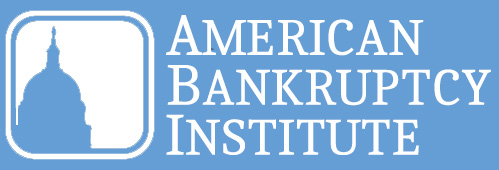
Shortly after the commencement of the 119th Congress, Reps. Young Kim (R-Calif.) and Sarah McBride (D-Del.) introduced the Ending Scam Credit Repair Act (ESCRA)1 to crack down on fraudulent practices in the credit repair industry. The bipartisan bill targets creditrepair organizations (CROs) that deceive consumers with high fees and empty promises to improve credit scores. The bill will ensure transparency and accountability for consumers, but also will provide much-needed protections for attorneys assisting consumers with legitimate credit disputes, including those arising in connection with bankruptcy.
Aimed at tackling the practice of “credit report jamming,” where CROs send repeated baseless dispute letters to credit bureaus, with the goal of clogging up the dispute process and temporarily “cleaning” the consumer’s credit report, Rep. Kim said that fraudulent CROs “should not get away with scamming hardworking Americans seeking to improve their scores and unlock their American dream.”
The Consumer Financial Protection Bureau (CFPB) has taken action against a conglomerate of the nation’s largest CROs for illegally collecting fees. Following the lawsuit, the CFPB is now distributing $1.8 billion to more than 4 million consumers nationwide. To prevent such abuses in the future, the ESCRA prevents CROs from charging illegal upfront fees. Rep. McBride described it as follows:
"CROs exploit legal loopholes to target cashstrapped Delawareans by charging large upfront fees based on false hopes of debt reduction. Our bipartisan bill eliminates those loopholes that have allowed predatory practices to flourish by banning upfront fees, improving transparency, and enhancing consumer protections."
The ESCRA would prohibit CROs from charging consumers until six months after they have provided proof that their credit score has improved, while also increasing civil penalties for violations. The bill would also prohibit CROs from “jamming” financial institutions with duplicative requests, which has prevented consumer-reporting agencies and data-furnishers from addressing legitimate credit-report issues.
While generally important for consumers, the ESCRA also is particularly pertinent because it draws heavily on the Bankruptcy Code for an innovative approach to allow attorneys to assist and represent consumers with correcting legitimate credit-report disputes. Many CROs have attempted to avoid restrictions under the Credit Repair Organizations Act (CROA) or the Telemarketing Sales Rule (TSR) through a “rent-a-lawyer” scheme, asserting that the prohibitions (among others) on collecting advance fees do not apply, as the CRO is providing legal services. In combating this, legislation has often tended to bar all lawyers from being paid in advance for providing any advice or assistance regarding credit-report errors. This can have the de facto effect of only restricting honest lawyers from assisting consumers (with one out of five Americans having an error on a credit report), since disreputable CROs will likely have few compunctions in violating this restriction.
CROs have even argued that consumer bankruptcy attorneys who review their clients’ credit reports at no additional cost post-discharge for inaccuracies have violated the CROA and TSR by collecting their bankruptcy fees prior to the provision of all related legal services, since that offer is an improper inducement. The ESCRA, in language directly paralleling the Bankruptcy Code, would exempt:
"any attorney [who] provides legal services rendered or to be rendered to a consumer in contemplation of or in connection with a case filed, or to be filed within 12 months, under title 11 or title 15, United States Code, by an attorney within the same law firm".
By tying this exemption to actual pending cases, whether being filed in bankruptcy or under other consumer-protection statutes, such as the Fair Credit Reporting Act, attorneys can receive reasonable payment for their legal services. As the CROs falsely offering “quick and painless” credit report jamming assiduously seek to avoid even the mention of bankruptcy, it is unlikely that they would pretend to “contemplate bankruptcy.” It is believed that this would deter consumers and also expose CROs to all of the debt-relief agent requirements of the Bankruptcy Abuse Prevention and Consumer Protection Act of 2005.
With bipartisan support in Congress from Reps. Kim and McBride, as well as from consumer groups, including the National Consumer Law Center and the American Financial Services Association, the ESCRA has a reasonable likelihood of passage and would provide meaningful protections for consumers, credit-reporting agencies and consumer attorneys alike.


Blog comments